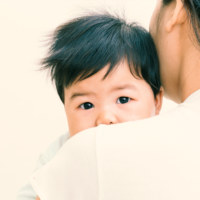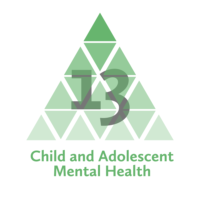Longitudinal cohort study
-

Can genetic discoveries for age-at-first-birth predict disinhibitory behaviours?
Researchers have tested the hypothesis that molecular-genetic influences on age-at-first-birth can predict disinhibition.
Read more -

Boys and girls show different vulnerabilities to maternal postnatal depression
Findings suggest that prenatal anxiety and depression confer risk in different ways in boys and girls, and later work confirmed that there might be sex differences in the biological underpinning of psychopathology.
Read more -

Occasional cry-it-out has no adverse effects on infant–mother attachment or behavioural development
The debate over letting an infant ‘cry-it-out’ or responding immediately has been ongoing for decades. Now, researchers at the University of Warwick have provided important evidence to inform this debate.
Read more -

Most cited CAMH paper joint #13 of 25: Predictors of Service Use for Mental Health Problems Among British Schoolchildren
Tamsin Ford, Helena Hamilton, Howard Meltzer, Robert Goodman.
Read more
Key Practitioner Message includes; Regional differences in contact with public sector services for mental health services suggest that the organisation of services can influence who is and is not seen -

Paternal depression affects adolescent mental health
A large body of studies have shown that exposure to maternal depression is a key risk factor for adolescent depression, comparatively fewer studies have investigated the influence of paternal depression on children and adolescents.
Read more -

Low parental belongingness increases suicidal ideation risk
The Saving and Empowering Young Lives in Europe (SEYLE) randomized controlled trial (RCT) was originally established to evaluate the efficacy of three school-based interventions on preventing suicide in 11,000 adolescents.
Read more -

Inflammation does not mediate an adverse childhood experience– self-harm risk association
Inflammation has been proposed to be a candidate mechanism contributing to the association between exposure to adverse childhood experiences (ACEs) and the risk of self-harm. In the first study of its kind, researchers in the UK have now directly studied whether inflammatory processes do indeed mediate this association.
Read more -

Psychotic Experiences: what they are and why we care about them?
Over the past 20 years, findings from the field of psychosis research have shed new light on the prevalence of PEs among children and adolescents, revealing that about 17% of children and 8% of adolescents report experiences of these phenomena.
Read more -

Social connectedness and suicidal thoughts and behaviors among adolescents
Suicide is a major public health concern claiming over 44,000 lives annually and ranking within the top 10 causes of death for the general population and the 2nd leading cause of death for those aged 15-24 years of age (though there is variation in this when examining causes by racial groups).
Read more -

Parenting practices that support the sensation-seeking child
Sensation-seeking is a personality trait of people who go after varied, novel, complex and intense situations and experiences. Sensation-seekers are even willing to take risks in the pursuit of such experiences. Until now, research has primarily focused on how sensation seeking relates to the development of undesirable behaviours, including drug and alcohol abuse, high risk sexual behaviours (like unprotected sex or having multiple partners), gambling and delinquency.
Read more